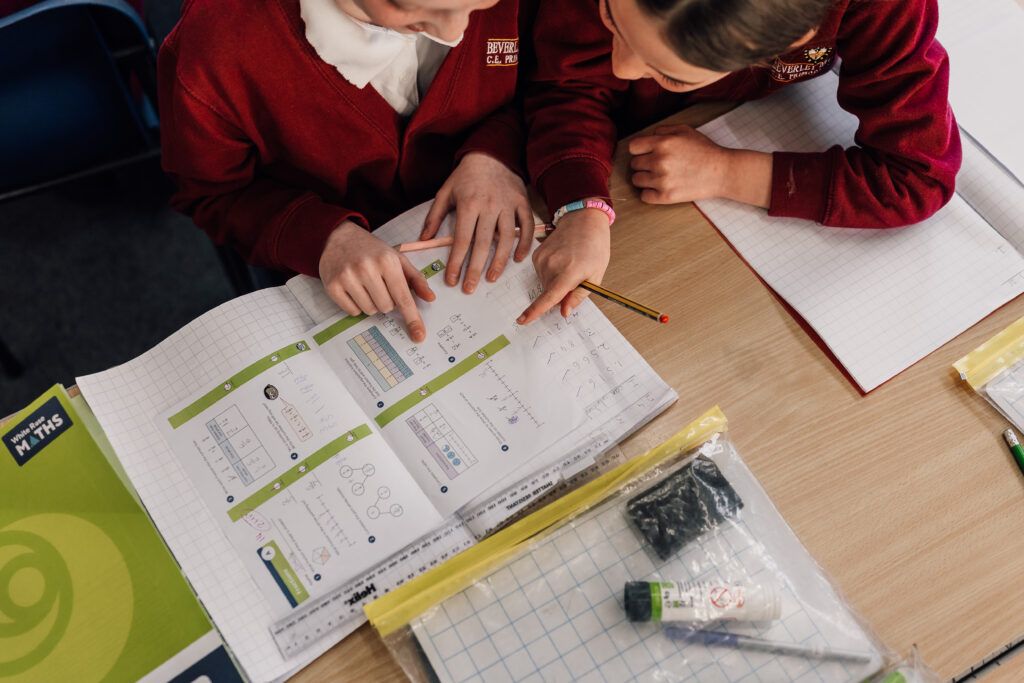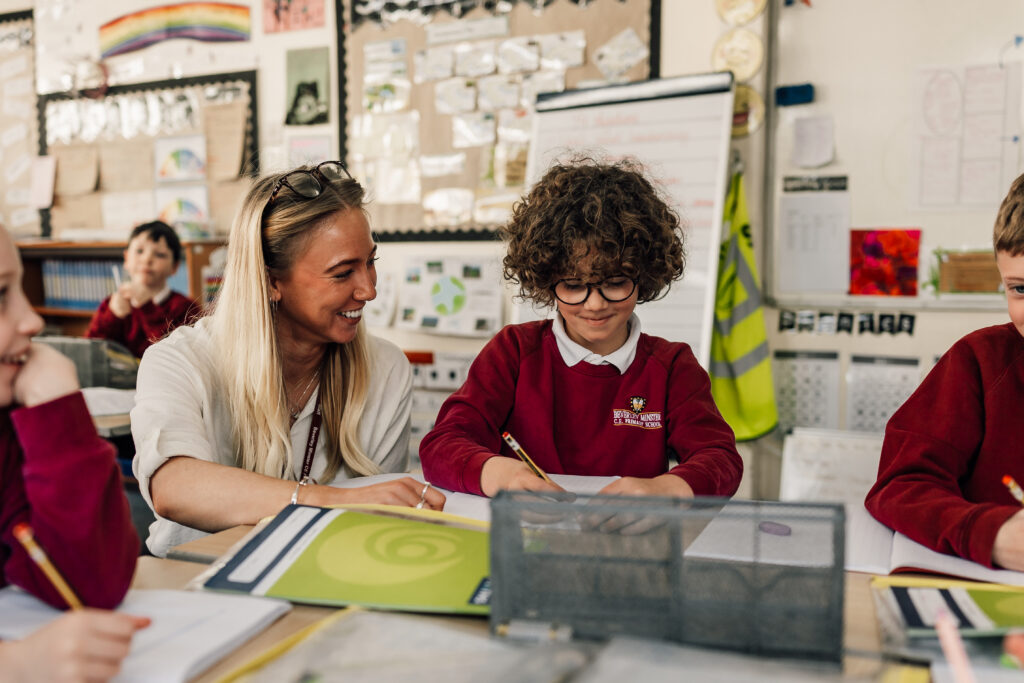- Art & Design
- Computing
- Design & Technology
- Early Years Foundation Stage (EYFS)
- English
- French
- Geography
- History
- Mathematics
- Music
- Physical Education
- PSHE
- Religious Education
- Science
Intent
At Beverley Minster CE Primary School, our intent for mathematics is to teach a rich, balanced and progressive curriculum using maths to reason, problem solve and develop fluent conceptual understanding in each area. As well as following the national curriculum, our curriculum allows children to better make sense of the world around them with opportunities to use and make connections between mathematics and everyday life.
The structure of the mathematics curriculum across school shows clear progression in line with age related expectations.
Teaching curriculum content in blocks allows children to explore skills and knowledge in depth and gain a secure understanding of particular subject matter. Key knowledge and skills are also revisited regularly allowing repetition to build on knowledge and skills and further embed learning, ensuring both challenge and support for all learners.

A concrete, pictorial, abstract approach provides children with a clear structure in which they can develop their depth of understanding of mathematical concepts.
We aim to ensure that mathematics is a high profile subject which children view positively and with a ‘Can do’ attitude.
Implementation

Our resources and equipment ensure children have access to materials of high quality and accuracy to support their learning, allowing us to better use models and images to support learning in each area and enable the progression from concrete to pictorial to abstract. Children are familiar with these resources and can access them independently where needed.
Curriculum maps are based on the White Rose yearly overviews which set the curriculum out in blocks enabling children to get to grips with different areas of maths through extended periods of time. Alongside the White Rose materials, we use many other resources to ensure that our offer is rich and varied. These include the Number Sense fluency programme in EYFS and Key Stage 1, NCETM, NRich and I see Reasoning materials.
These allow children to be exposed to a variety of different types of learning and to ensure coverage of fluency, problem solving and reasoning in different formats to ensure that they develop as an individual.
The school has an agreed calculation policy for progression in written and mental calculations. A variety of assessments are used which help teachers to gather an understanding of their pupil’s existing and developing knowledge and skills.
Correct mathematical vocabulary is used by all teachers and this is discussed with and explained to children who are then encouraged to use it independently when talking about maths. Vocabulary is displayed clearly on working walls and is referred to in every lesson. Timetabled interventions for maths are in place for children with SEND; all other children receive regular group support as part of their maths lessons with further support for individuals or small groups where a need is identified.
Fluency is developed through repeating, reinforcing and revising key skills; regular arithmetic takes place in all classes. Children are given time to practise and perfect their calculation strategies including giving pupils the opportunity to make appropriate decisions when estimating, calculating and evaluating the effectiveness of their chosen methods. Feedback is given in a variety of ways to ensure pupils are well informed and making visible progress. Discussion is essential to learning and children are encouraged to discuss their thoughts, ideas and methods with a partner, group or the teacher. Task types are varied to suit different pupils and their learning preferences; developing reasoning remains one of our key focuses. Investigative tasks are designed to allow pupils to follow lines of enquiry and develop their own ideas, justifying and proving their answers. Children work both collaboratively and independently when solving problems which require them to persevere and develop resilience.
